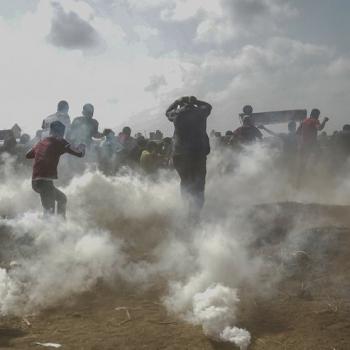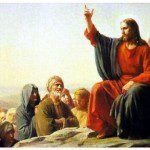“Thus says the Lord concerning the prophets who lead my people astray, who cry ‘Peace’ when they have something to eat, but declare war against those who put nothing into their mouths. Therefore it shall be night to you, without vision, and darkness to you, without revelation” (Micah 3:5-6). This is an excerpt from the Daily Office Old Testament reading for October 11th, 2012. It raises a question: what does peace really mean? For those who have enough to eat, peace simply means the absence of physical violence and bloodshed. To them, a peaceful society is one in which the laws are followed and people who break the laws are caught and punished. But this is not the case for those who have nothing to put in their mouths. Their hunger is violence against them and the fact that the responsibility for their hunger is not traceable to a specific person who broke a specific law only exacerbates this violence. We should be called out by these two verses from Micah, because they describe the attitude that many Americans have today.
God isn’t satisfied with a society in which everybody follows the rules and minds their own business, because in a society where our moral responsibility stops at the line of our white picket fences, the people who are outside of everybody’s white picket fences starve and die. When I am so focused on my own career and my own family that I have insulated myself from the suffering of others, I am declaring war on them. When I come up with easy explanations for others’ poverty (laziness, addiction, dependency, etc) that satisfy and comfort me in my complacency, I am engaging in spiritual violence against them. The peace that I enjoy in my comfortable suburban home mocks God if it comes at the expense of my active engagement with those who have nothing to put in their mouths.
Of course what Micah is most concerned about are those who lead other people astray. How many pastors in America have contributed to our atmosphere of selfish individualism which declares war on the hungry and the needy? How many of us have made God out to be a picky judge of deportment and etiquette instead of the zealously loving father who boils with rage when His children suffer? This is what happens when we conceive of sin in purely vertical terms as infractions against God’s honor rather than recognizing that God wants our honor so that we will love and honor our neighbor as a simultaneous expression of our reverence towards God. We are absolutely called to be holy, but holiness is not so much unimpeachable rule-following as it is a Christlike spirit in how we treat others. The Old Testament prophets constantly called out Israel for wanting to worship God with great pomp and circumstance when their hands were “full of blood” (Isaiah 1:15). It profanes our worship of God when there is no justice and peace in the land.
Now it’s important to understand the Hebrew meaning of justice and peace because it’s different from the Enlightenment meaning. For the Israelites, mishpat (justice) meant not only that rules were followed and rule-breakers were punished but that everyone in society was taken care of. When the prophets go off on rulers for lacking mishpat, almost invariably it boils down to the question of how they have treated the widows and the orphans, the two basic categories of poverty in ancient Israel. Peace also has a different meaning in Hebrew. It is not just the absence of conflict. Shalom is completeness. It’s the presence of perfect harmony and fulfillment. Micah 4:4 depicts a perfect image of shalom: “Everyone will sit under their own vine and under their own fig tree, and no one will make them afraid, for the Lord Almighty has spoken.” It describes a social order in which people have what they need, where there isn’t a single person who puts nothing into their mouths. That’s what peace is, and it mocks God when we make peace with anything less.











